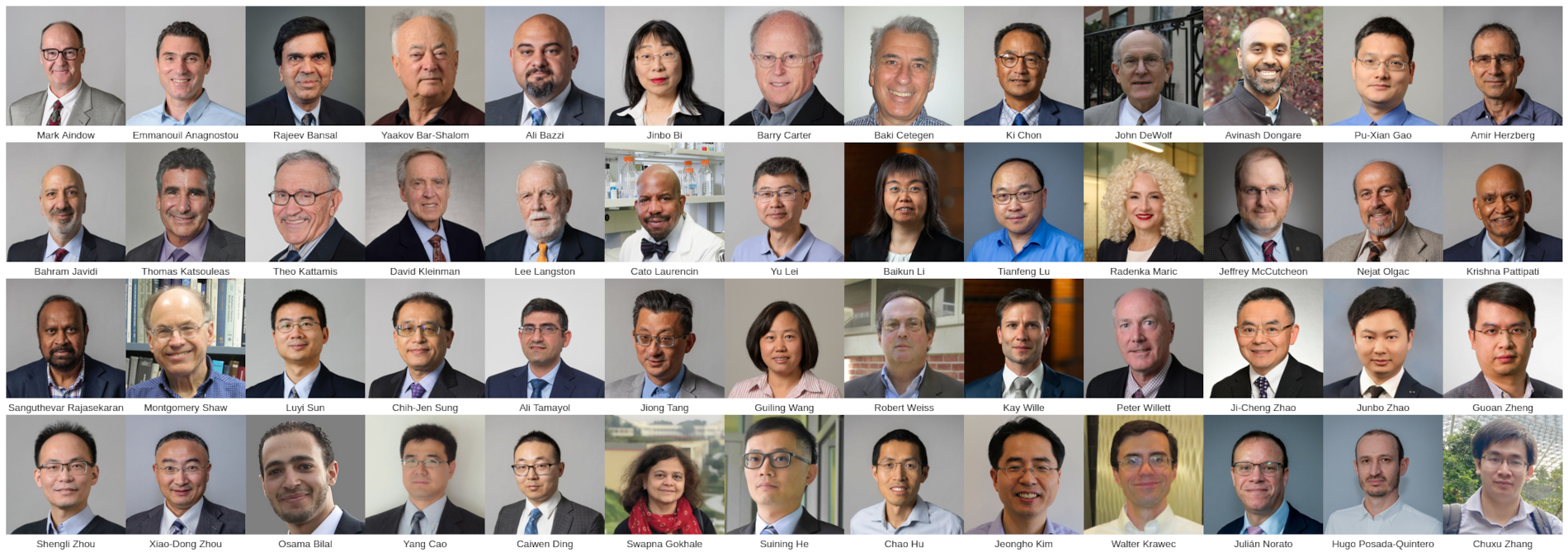
Why Our Faculty Top the Charts
At the University of Connecticut College of Engineering, we are more than an academic institution of higher learning. We are part of a bigger picture. Not only do we educate the future generation of educators, engineers, and scientists but we are also honored to have great intellectual minds among us who happen to be renowned scientists.
These scientists come from all walks of life, different countries and regions of the United States. Their cited work helps others in solving complex problems. This is what makes and distinguishes our faculty from others.
Their work not only advances academic knowledge but also offers innovative solutions to pressing global challenges in health care, energy, and materials science.
December 9, 2024
52 UConn Engineering Faculty Among World’s Top 2% of Scientists
Combined Reports - University Communications
Fifty-two faculty members from the UConn College of Engineering have been recognized among the world’s top 2% of scientists in 2024, according to Stanford/Elsevier’s Top 2% Scientist Rankings. This annual ranking highlights the most widely cited researchers across diverse scientific disciplines, underscoring their significant contributions to research and their global impact.
The Stanford rankings evaluate over 6 million researchers globally, identifying the top 100,000 based on career-long or single-year outputs in 22 scientific fields and 174 subfields. These rankings are determined through a comprehensive citation score (c-score), calculated from six key metrics, including total citations and authorship roles. Scholars who place within the top 100,000 worldwide based on these metrics, or who rank within the top 2% in their specific subfields, are included on this prestigious list.
The top 2% career-long faculty members from UConn’s College of Engineering are: Mark Aindow, Emmanouil Anagnostou, Rajeev Bansal, Yaakov Bar-Shalom, Ali Bazzi, Jinbo Bi, C. Barry Carter, Baki Cetegen, Ki Chon, John DeWolf, Avinash Dongare, Pu-Xian Gao, Amir Herzberg, Bahram Javidi, Thomas Katsouleas, Theo Kattamis, David Kleinman, Lee Langston, Cato Laurencin, Yu Lei, Baikun Li, Tianfeng Lu, Radenka Maric, Jeffrey McCutcheon, Nejat Olgac, Krishna Pattipati, Sanguthevar Rajasekaran, Montgomery Shaw, Luyi Sun, Chih-Jen Sung, Ali Tamayol, Jiong Tang, Guiling Wang, Robert Weiss, Kay Wille, Peter Willett, Ji-Cheng Zhao, Junbo Zhao, Guoan Zheng, Shengli Zhou, and Xiao-Dong Zhou
The 2023 single-year top 2% winners are: Osama Bilal, Yang Cao, Caiwen Ding, Swapna Gokhale, Suining He, Chao Hu, Jeongho Kim, Walter Krawec, Julián Norato, Hugo Posada-Quintero, and Chuxu Zhang.
This recognition highlights the high caliber of UConn’s engineering faculty, whose research spans critical fields such as biomedical engineering, mechanical engineering, and chemical engineering. Their work not only advances academic knowledge but also offers innovative solutions to pressing global challenges in health care, energy, and materials science.
“It is with immense pride and admiration that I congratulate the College of Engineering faculty being recognized among the top 2% of scientists worldwide,” says Anne D’Alleva, UConn’s provost and executive vice president for academic affairs. “This distinction is a testament to their innovation and dedication, and the far-reaching impact of their work. Their achievements not only elevate the reputation of our College of Engineering but also inspire us all to strive for excellence.”
UConn President Radenka Maric, who is a professor in UConn College of Engineering, is in the top 2% list together with the Dean of Engineering Ji-Cheng (JC) Zhao. The top five highest ranked professors from UConn College of Engineering are: Yaakov Bar-Shalom, Bahram Javidi, Cato Laurencin, Ji-Cheng (JC) Zhao, and Thomas Katsouleas.
“Hearty congratulations to our esteemed faculty for their remarkable achievements and dedication to excellence in their fields,” says Zhao. “Their exceptional scholarship leads to both high-quality education and societal impact.”